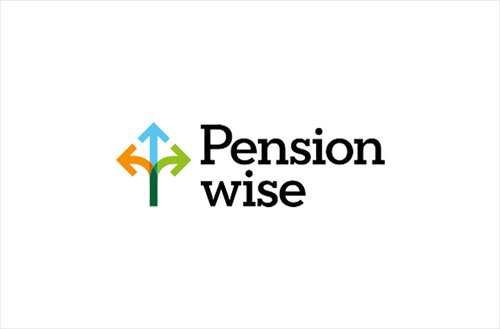- How much is your house worth?
- Do you have any other savings and investments?
- Are you expecting any other large windfalls or inheritances?
- Do you have any other valuable assets?
- Have you made a will or reviewed and updated it recently?
Investment accounts
Adult accounts
Child accounts
Choosing Fidelity
Choosing Fidelity
Why invest with us Current offers Fees and charges Open an account Transfer investments
Financial advice & support
Fidelity’s Services
Fidelity’s Services
Financial advice Retirement Wealth Management Investor Centre (London) Bereavement
Guidance and tools
Guidance and tools
Choosing investments Choosing accounts ISA calculator Retirement calculators
Share dealing
Choose your shares
Tools and information
Tools and information
Share prices and markets Chart and compare shares Stock market news Shareholder perks
Pensions & retirement
Pensions, tax & tools
Saving for retirement
Approaching / In retirement
Approaching / In retirement
Speak to a specialist Creating a retirement plan Taking tax-free cash Pension drawdown Annuities Investing in retirement Investment Pathways
In this section

Legacy planning with a SIPP
Why your pension is a great place to start when thinking about what to leave your loved ones.
Important information - The value of investments can go down as well as up so you may not get back what you invest. Tax treatment depends of individual circumstances and all tax rules may change in the future. The minimum age you can normally access your pension savings is currently 55 (57 from 2028). It’s important to understand that pension transfers are a complex area and may not be suitable for everyone.
Legacy planning at a glance
In this section, we take a much closer look at your pension and how your loved ones can benefit from it when you're no longer around.
Pensions can be a great way to leave something to those closest to you, as they often sit outside your estate, which means they won’t normally count towards your £325,000 inheritance tax allowance (£650,000 for married couples or civil partnerships).
If you have saved into your pension plan you have a number of options to consider when deciding how much to leave your loved ones. We’ve highlighted these below:
Leave it invested
If you don't need your pension to provide you with an income you can leave it invested. However, depending on how old you are when you die your family may have to pay tax on any money they withdraw after your death.
Take regular income or lump sums
If you decide to withdraw money from your pension regularly or in lump sums, whatever remains when you die can still be left to your family.
What this means for the tax they will pay
If you die before the age of 75
- Anything left in your pension can be paid to your beneficiaries
- This could be paid as a lump sum or they can take regular withdrawals
- Generally, in either case it will be tax free
If you die after the age of 75
- Anything left in your pension can be paid to your beneficiaries
- This could be paid as a lump sum or they can take regular withdrawals
- Any lump sum or withdrawals paid out will be subject to tax based on the individual tax position of the beneficiary
Things to consider
There are a number of factors that may affect how much you are able to leave to your loved ones.
You should also consider updating your 'Expression of Wish' form if you haven't looked at it for a while. Generally this should be done every 3 years to help the scheme administrators determine who to pay your pension benefits to if you die.
For your 'estate' (your property, money and possessions) to be distributed when you die, an application for the legal right to deal with your estate will need to be made to the local Probate Registry.
Family homes and inheritance tax
In addition to the existing £325,000 nil rate band, known as NRB, a dedicated main residence nil rate band, known as RNRB, is intended to protect the family home from Inheritance Tax. This applies if a home has been left to children (including adopted, foster or stepchildren) or grandchildren (family homes are transferred to spouses and civil partners tax-free). In addition, if your estate is worth less than your threshold when you die and you're married or in a civil partnership, any unused threshold can be added to your partner’s threshold. This means the tax-free threshold for the surviving spouse could be as much as £1 million.
The RNRB threshold amount for the 2024/2025 tax year is £175,000.
The RNRB may also be available to you if you’ve downsized or sold your home on or after 8 July 2015. This allows assets of an equivalent value to be passed on to your direct descendants.
For estates with a net value of over £2m, the RNRB will be withdrawn at a rate of £1 for every £2 over the £2m threshold.
Growing your wealth and passing it on
Your pension is just one way of passing on your wealth. It's good to understand what else is involved so that you can take comfort in the fact that you're doing all you can now, for when you're no longer here. There's more about this in our 'passing on wealth' section.

We can help
Transferring a pension is a big decision, so you should seek advice first. We offer advice that’s in your best interests, even if it means recommending that you leave your money where it is.
Call us on 0800 368 6882, Monday to Friday, 9am - 5pm.
Fidelity's retirement servicePension Wise
The Government offers a free and impartial guidance service to help you understand your options at retirement. This is available via the web, telephone or face-to-face through the Pension Wise service which is now part of MoneyHelper; the easy way to get free help for all your pension and money choices. You can find out more by going to moneyhelper.org.uk or call them on 0800 138 3944.
Visit Pension Wise
Important information: This information is not a personal recommendation for any particular product, service or course of action. It’s important to understand that pension transfers are a complex area and may not be suitable for everyone. Before going ahead with a pension transfer, we strongly recommend that you undertake a full comparison of the benefits, charges and features offered. To find out what else you should consider before transferring, please read our transfer factsheet. If you are in any doubt whether or not a pension transfer is suitable for your circumstances we strongly recommend that you seek advice from Fidelity Retirement Services on 0800 368 6882 or refer to an authorised financial adviser of your choice.
Take control of your pensions by bringing them together
Trying to manage pensions across different providers can be both time-consuming and difficult. Bringing them together into Fidelity’s Self-Invested Personal Pension (SIPP) can help you take control and plan ahead more effectively.
Find out more
Policies and important information
Accessibility | Conflicts of interest statement | Consumer Duty Target Market | Consumer Duty Value Assessment Statement | Cookie policy | Diversity, Equity & Inclusion | Doing Business with Fidelity | Diversity, Equity & Inclusion Reports | Investing in Fidelity funds | Legal information | Modern slavery | Mutual respect policy | Privacy statement | Remuneration policy | Security | Statutory and Regulatory disclosures | Whistleblowing policy
Please remember that past performance is not necessarily a guide to future performance, the performance of investments is not guaranteed, and the value of your investments can go down as well as up, so you may get back less than you invest. When investments have particular tax features, these will depend on your personal circumstances and tax rules may change in the future. This website does not contain any personal recommendations for a particular course of action, service or product. You should regularly review your investment objectives and choices and, if you are unsure whether an investment is suitable for you, you should contact an authorised financial adviser. Before opening an account, please read the ‘Doing Business with Fidelity’ document which incorporates our client terms. Prior to investing into a fund, please read the relevant key information document which contains important information about the fund.
This website is issued by Financial Administration Services Limited, which is authorised and regulated by the Financial Conduct Authority (FCA) (FCA Register number 122169) and registered in England and Wales under company number 1629709 whose registered address is Beech Gate, Millfield Lane, Lower Kingswood, Tadworth, Surrey, KT20 6RP.

